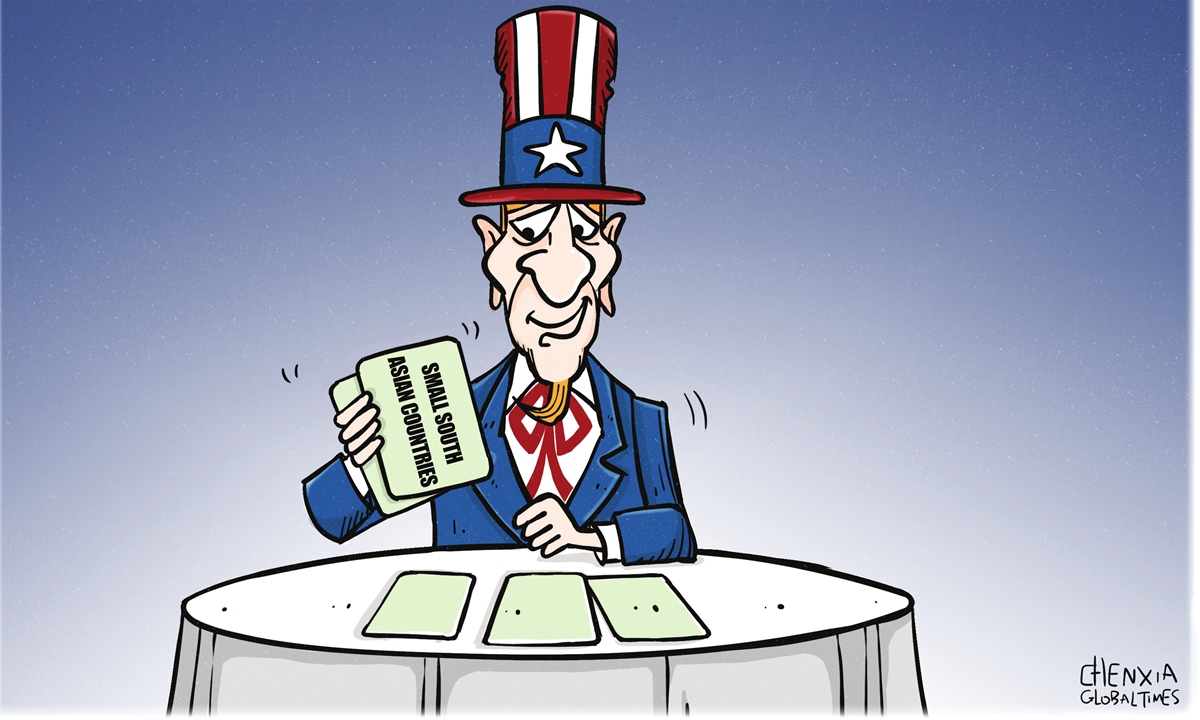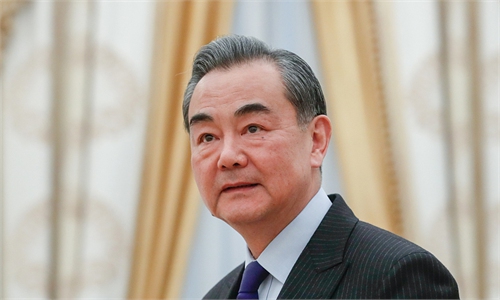
Illustration: Chen Xia/Global Times
For quite a long time in the past, certain small countries in South Asia had been blind spots to the strategic vision of elites in Washington. In terms of military cooperation, few things can make relevant parties excited. But Nepal's recent decision to stay away from US' State Partnership Program (SPP) could be a symbolic signal. Nepal said no to the US, but over the past few years, Pentagon has been frequently creeping its tentacles toward South Asian countries. It is not only a sign of the accelerated promotion of US' Indo-Pacific Strategy, but also mirrors the shadows of US strategic competition against China.
During Donald Trump's presidency, one of the primary features of US Indo-Pacific Strategy was to put security first and economy second. The 2019 Indo-Pacific Strategy Report put forward a "3P" strategy - including preparedness, partnerships, and promoting a networked region. It also stated that "Within South Asia, we are working to operationalize our Major Defense Partnership with India, while pursuing emerging partnerships with Sri Lanka, the Maldives, Bangladesh, and Nepal."
Washington's tentacles have crept into South Asian countries. The US has signed an Acquisition and Cross-Servicing Agreement (ACSA) and has been negotiating other military or defense agreements with Sri Lanka. The US and the Maldives inked a Framework on Defense and Security Relationship.
Biden administration's version of Indo-Pacific Strategy mentioned the Indian Ocean region several times, but no South Asian country is named in it. This is a subtle change made by the Biden administration. The change occurred not because the US no longer attaches importance to small South Asian countries on military security issues, but, I am afraid, rather displays a deliberate strategy of lowering expectations and ultimately aiming at controlling them, after reviewing and assessing the successes and failures in recent years, which includes US considerations to promote security cooperation with small South Asian countries in the future.
On the one hand, although the Biden administration claims not to seek a new cold war with China, it emphasizes the need to force China "to change its behavior" by so-called shaping its neighborhood. South Asia is an important part of China's neighborhood, with small countries in this region, who are key partners in the Belt and Road Initiative being the targets of the US efforts to "shape China's neighborhood," because the bilateral military relationships between the US and those countries, once built, can influence both political and economic ties.
On the other hand, China's long-standing friendly relations with South Asian countries may have made the US more or less aware from past lessons that too much of a high profile when roping them in will instead hit a wall. China has maintained a broad and multi-level military cooperation with those countries, with remarkable results in military exchanges, personal training, and weapons and equipment. This not only synchronizes their bilateral political, economic and trade cooperation, but is also a true reflection of China's foreign policy of not bullying the weak and the principle of mutual respect in the field of military cooperation.
Accordingly, it's not difficult to understand why the small South Asian countries have turned down conditional US military assistance over the years for the sake of safeguarding their national interests and preserving their traditional friendship with China. At present, the US is posing as a malicious competitor of China, but if it continues to make high-profile moves, it may deepen its bullying image among people in the small countries that the US is "luring in allies" and forcing them to "take sides." This time, after the SPP incident in Nepal came to light, the stormy reaction of public opinion in the country will be a "lesson learned" in the future for the US.
The author is director of the research department at the National Strategy Institute at Tsinghua University. opinion@globaltimes.com.cn


